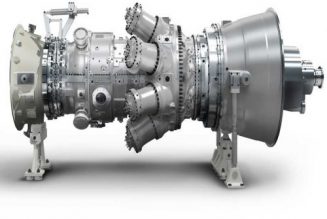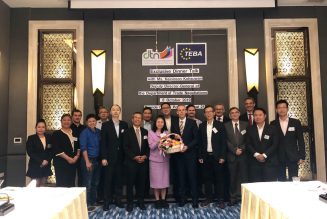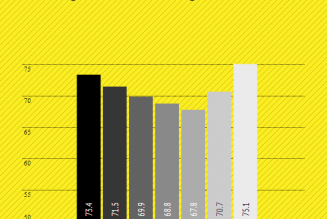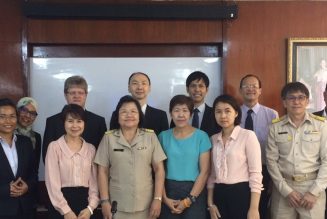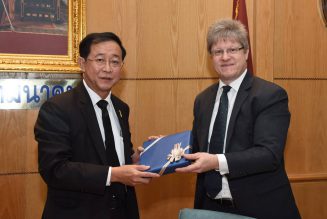Gross domestic product is expected to grow in 2012 by about seven per cent on the back of government investment to rebuild the country, Commerce Minister Kittiratt Na-Ranong said on Wednesday.
Deputy Prime Minister Kittiratt said the government will implement policies focusing on distribution of income, increasing prices of agricultural products and raising of daily minimum wage of workers.
The government will intervene in the market to ensure that prices of agricultural goods are reasonably high, particularly rice for which the mortgage prices are set at between 15,000 baht and 20,000 baht per tonne depending on type of rice, Mr Kittiratt added.
A budget of more than 400 billion baht budget will finance this scheme, said the minister.
The 300 baht daily minimum wage policy will be initially implemented in Bangkok and six nearby provinces from April 1, 2012, slower than the previously Jan 1, 2012, due to the devastating floods, he said.
Mr Kittiratt was confident that a recovery in the export sector would be seen in the first quarter of next year and that investment in infrastructure development projects by the government would help boost the purchasing power of the people.
The economy will also be fired by the low interest rates and stable value of the baht currency at the present time, he said.
“The floods have severely damaged the country but the government’s policies to rehabilitate flood affected provinces will rebuild the infrastructure in the country. The policy to raise the daily minimum wage is aimed at eradicating poverty in Thai society,” Mr Kittiratt said.
Industry Minister Wannarat Channukul said applications for Board of Investment (BoI) privileges in November totalled 135.6 billion baht.
Despite the great flood, there were 177 foreign direct investment (FDI) applications last month, said Mr Wannarat.
He said the total number of FDI applications between January and November this year stood at 1,630 projects, valued at 615.4 billion baht, higher than the 500-billion-baht initial target.
“This shows that the confidence of Thai and foreign investors is still at a satisfactory level,” the minister said.
However, the number of investment applications would likely decline soon.
The service and public utility sectors topped the list of applications, followed by metal, machinery, vehicles and auto parts, and electronics and appliances.
Bank of Thailand governor Prasarn Trairatvorakul has agauin warned Thai commercial banks of the need to prepare for the hurdles that will arise from free trade once the Asean Economic Community (AEC) agreement is implemented.
Mr Prasarn said the banks need to ensure they are properly prepared. Foreign market penetration has not been the commercial banks’ main focus until now, he said.
Thai banks have been effective in competing with other local banks and international banks on a domestic level, but have failed to formulate contingency plans to embrace free trade.
“I want to see Thai commercial banks start implementing strategies to enter into foreign markets. We need to think more globally,” he said
The governor said the central bank has always been a major supporter of Thai commercial banks and their customers, with periodic meetings to discuss issues.

